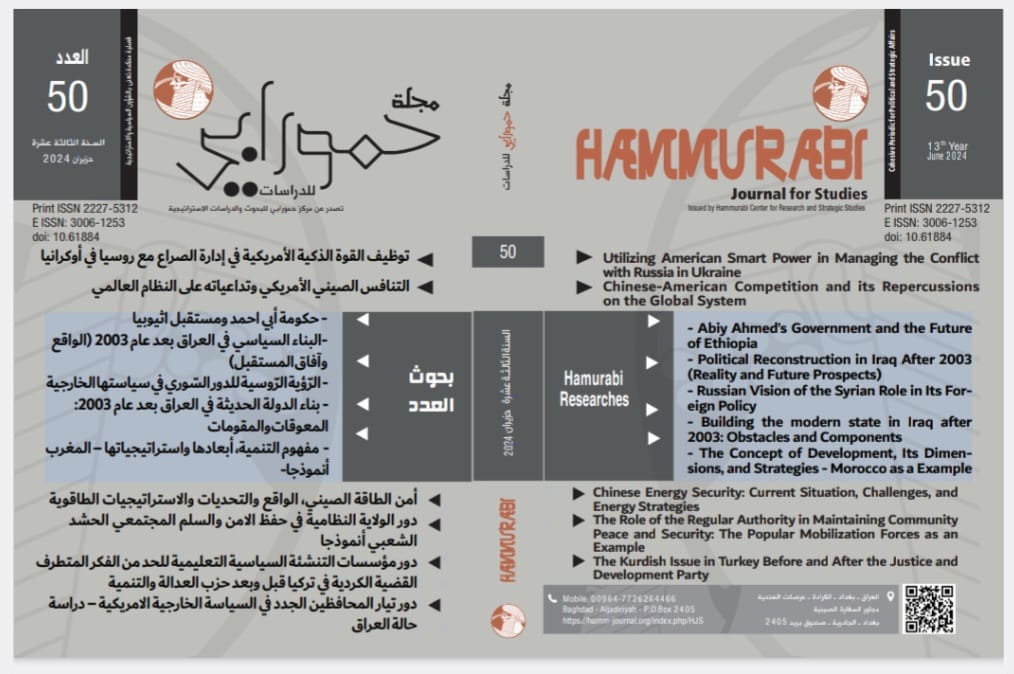The Role of the Neoconservative Movement in American foreign Policy - A Case Study of Iraq.
DOI:
https://doi.org/10.61884/hjs.v13i50.490Abstract
After the events of September 11, 2001 in the United States, calls for a change in US policy towards the resource-rich Middle East, which represents a focal point of its interests, escalated. The United States worked on adopting a new policy represented by the policy of preemptive war and the inclusion of the concept of the war on terror and the use of hard power as tools of American foreign policy. This political American reaction was a result of the events of September 11, and can be traced back to the intellectual and strategic political reference of the Republican Party, greatly influenced by the neoconservative movement within the party. This is clearly evident from the political events that occurred when Republicans rose to power in the White House. The war on Iraq launched by the United States in 2003 and its occupation was part of the concept of preemptive war and combating terrorism, as declared by the United States. However, reality indicates that the underlying motives were economic and political, represented by the strategy of working to control its oil resources and its strategic geopolitical location.












